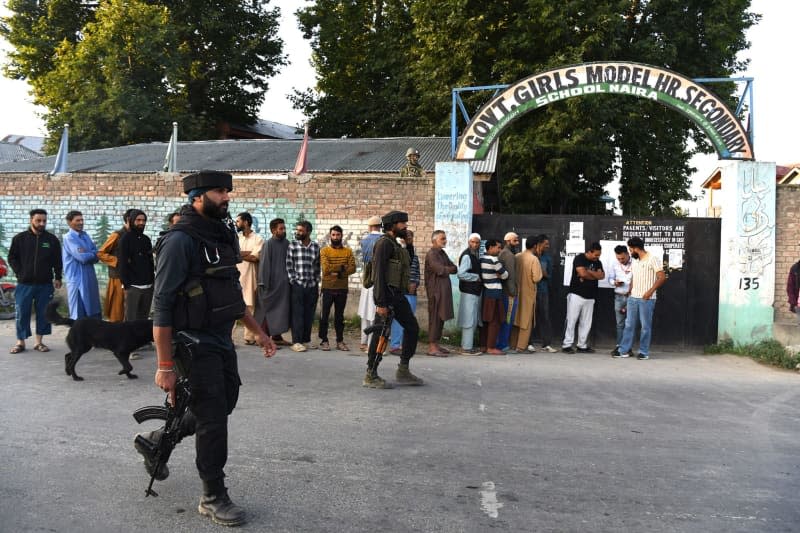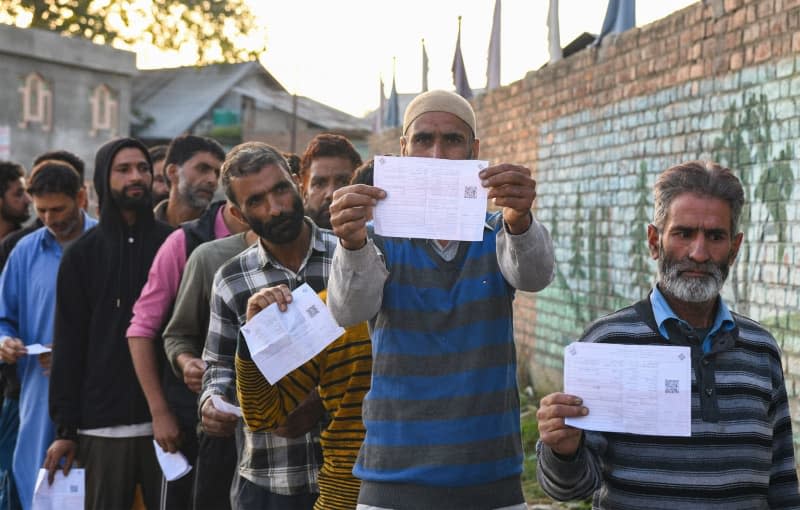India’s troubled region of Jammu and Kashmir saw a brisk turnout amid tight security as voters cast their ballots on Wednesday in the first regional legislative elections in a decade.
The region, which has seen years of separatist violence and is at the centre of a dispute between India and Pakistan, has been under federal rule after the collapse of a coalition government in 2018.
Elections are also being held for the first time since Prime Minister Narendra Modi’s Bharatiya Janata Party-led government revoked the erstwhile state’s partial autonomy in 2019 and divided it into two federally-administered territories of Jammu and Kashmir and Ladakh.
The three-phase elections that began on Wednesday saw long queues outside booths.
People said they wanted peace and prosperity for Kashmir, but also that they were still anguished at the sudden way in which their partial autonomy was removed in August 2021.
Partial autonomy gave the region the right to have its own flag and constitution, as well as the exclusive right of Kashmiris to own land.
Its removal was followed by months of clampdown on protesters, including the detention of politicians and activists and restrictions on movement and communications.
The Modi government has said the move was aimed at bringing the country’s only Muslim-majority state on par with the rest of India and improve its development.
Polling to the 90-member regional legislature is also scheduled on September 25 and October 1. Votes will be counted on October 8 with results expected the same day.
“I want a government that has our own people so that we can approach them easily and they understand our needs,” said 32-year-old Imran Ali of Pulwama as he waited to cast his ballot. ”We want peace, progress and dignity for Kashmir.”
Analysts say the powers of an elected regional government are likely to be limited and the polls may throw up a hung assembly.
Polling had been peaceful and a high turnout of 60 per cent was expected, Election Commission official PK Pole said.
The main players are the regional People’s Democratic Party (PDP), the National Conference Party (NCP) and national parties like the BJP and the Indian National Congress party. The NCP has formed an alliance with the Congress party. Several separatists are also contesting as independent candidates.
India-administered Kashmir has been dealing with a secessionist movement since the mid-1980s, with nearly 48,000 people killed in violence which New Delhi claims is supported by Pakistan. Islamabad denies the charge.
The erstwhile state had included Muslim majority Kashmir, Hindu-majority Jammu and Buddhist majority Ladakh.
There is a strong anti-India sentiment in the Kashmir valley, which often results in clashes between protesters and Indian security forces, who are present in large numbers to contain the militancy.











